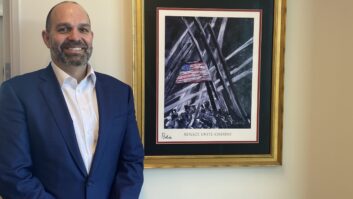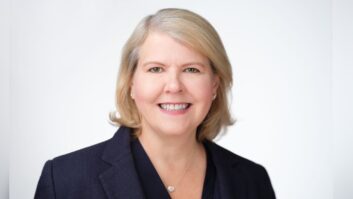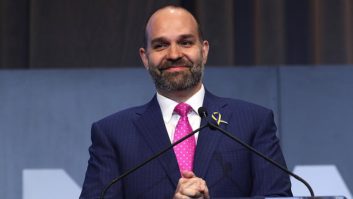With a new U.S. president, a sense of Republican hegemony on the Hill and a new direction at the FCC, what kinds of change can radio broadcasters expect to see?
The head of the National Association of Broadcasters discussed the administration, the 115th Congress and changes at the Federal Communications Commission in a podcast this week about what radio will see in this reshuffled political landscape.
Gordon Smith qualifies as something of an expert, given his background as a former U.S. Republican senator and, subsequently, one of the more popular NAB presidents and CEOs.
In the 15-minute podcast, he promised that his own organization would continue to focus on advocating for laws and regulations that strengthen and protect what he called broadcasting’s unparalleled communication architecture.
In terms of direction from the White House, Smith sees President Trump as a dealmaker but that quick change may be difficult when the new president finds that “you can’t run government like a business.”
“Businesses run to earn return on investment. Governments run to lay down rules of the road for how we operate as a civilized society.”
He mentioned strong relationships with Sen. John Thune, R-S.D., chair of the Commerce, Science & Transportation Committee, and Sen. Chuck Grassley, R-Iowa, chair of the Senate Judiciary Committee. “Both give us a fair hearing and I am optimistic of our continued relationships,” Smith said.
Smith also noted the importance of radio to congressional leaders like Greg Walden, R-Ore., who chairs the House Commerce Committee, who previously worked in radio and owned stations in Oregon. “Whenever I go to talk to him, he can finish my sentences because he knows radio and TV technology firsthand,” Smith said. “He knows the business model and he knows the difficulty and the challenges of being in the broadcasting industry.”
He said NAB continues to have and value close working relationships with members on both sides of the aisle, though he said Walden’s subcommittee chair, Marsha Blackburn (R-Tenn.) is on the flip side of issues such as performance taxes, “so we’ll have to make our case [there],” Smith said. “That’s what NAB exists for: to make the case for broadcasters [to bring] their remarkable public service to every community in America.”
The installation of new commission Chairman Ajit Pai portends good things for radio, Smith said. “When Ajit Pai first became an FCC commissioner, he came to the Radio Show and gave a remarkable speech to our radio membership about growing up with a radio nearby and how much it meant to him [while growing up] in rural Kansas,” Smith said. “[It gave him] a connection to his community and the larger world.”
With AM revitalization and other concerns for radio, Smith said Pai has been “right there every time.”
“When radio members think of regulatory underbrush they’d like to take a blowtorch to, I suspect that Ajit Pai will be very sympathetic to that,” Smith said. “He’s a fair man and he will evaluate both sides of an issue, but he’s oriented to markets and not to regulation. I suspect we will find a friendly audience with him.”
In times of a transition such as this, Smith says the NAB is continuing to protect broadcasters’ interests.
“NAB has many wonderful programs and member services, but none are more important … than advocating for laws and regulations that [support our members],” Smith said. “NAB knows where the leverage points are. We have friends in both parties. Our issues don’t register Republican or Democrat; we foster both sides of the political divide.”
What steps should radio broadcasters take back home? Stand up and make their voices heard about issues that matter, Smith said.
“We [the NAB organization] can do our part, but I’ll tell you, there is nothing more powerful than a local face,” Smith said. He recalled that local radio broadcasters would visit when Smith was a senator from Oregon. “When all of my Oregon radio broadcasters came in, I recognized how important they were to my ability to communicate with constituents and how much I desired and fostered a good relationship with radio,” he said.
“There is nothing in the world that can beat the broadcast architecture for communicating broadly and freely to all Americans, whether they can afford a subscription or not.”
NAB encouraged broadcasters with questions on how radio will be affected by the political landscape to contact the NAB Government Relations Department at [email protected].







